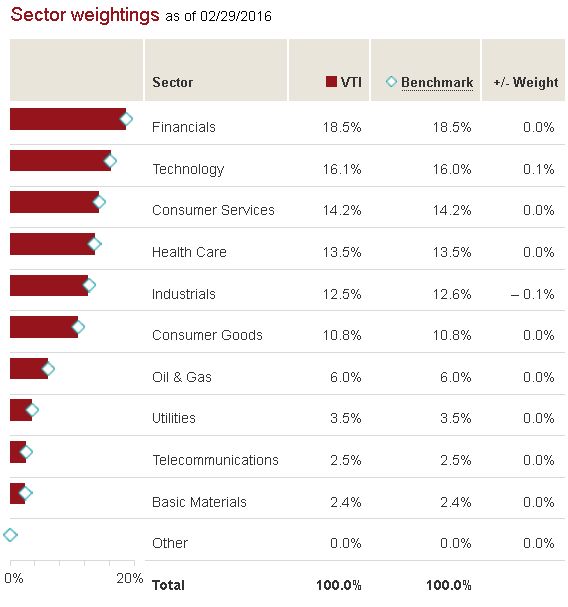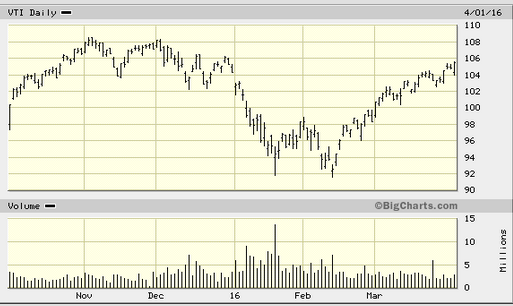Mutual funds that track vanguard total stock market viper
Vanguard plans to commence trading on its Total Stock Market VIPERs on May The Small Cap VIPERs, based on the Russell , was not immediately scheduled for launch. Presumably, Vanguard is involved in licensing negotiations with Russell ahead of the launch of the Small Cap fund.
The Vanguard VIPERs , or Vanguard Index Participation Equity Receipts, are exchange-traded funds ETFs that are set up as share classes of Vanguard's existing mutual funds.
ETF Center: Building the perfect ETF portfolio - Jun. 6,
With the launch, the VIPERs will be the first such shares to trade. ProFunds has announced similar plans to launch ETFs that will function as a share class of existing mutual funds. District Court Judge Alvin K. In the wake of the ruling, Vanguard spokesman John Woerth told IndexFunds.
Vanguard Readies ETF to Track Wilshire - TheStreet
The move further raises the profile of the Wilshire total market index, which Vanguard has long promoted as the best vehicle for achieving broad exposure to the U.
The new fund will enter the ETF playing field with an extremely competitive expense ratio. At the time of the launch, the VIPERs Total Stock Market TSM share class will offer investors the cheapest total market access available to the average investor.
The TSM VIPERs will have an expense ratio of 0. By way of comparison, the iShares Dow Jones Total Market and iShares Russell funds both have expense ratios of 0. The Investor class of the Vanguard TSM fund has an expense ratio of 0. Should it eventually be launched, the Small Cap VIPERs based on the Russell will have an expense ratio of 0.
The corresponding expense ratios for the Vanguard Investor, Admiral and Institutional small cap share classes are 0.

The question, of course, is moot for the moment, as Judge Hellerstein's ruling put the brakes on the launch of those VIPERs. One interesting aspect of the Vanguard launch is that the VIPERs will represent the first time an ETF has been launched as a share class of an existing mutual fund. In particular, this raises intriguing questions about the tax-efficiency of the fund.
Because the unique structure of ETFs, the funds are able to function in a way that is inherently more tax efficient for the fund than an equivalent traditional mutual fund.
ETF shares, which trade publicly like stocks, are created and redeemed in units of 50, shares. Shares of the underlying stocks are traded in-kind for ETF shares, unlike a mutual fund.

Taxable events do not occur when Authorized Participants or market makers redeem their fund shares in exchange for the underlying stock. Taxable events do occur when the ETF is forced to sell stock when the index changes its components or rebalances.
Mutual funds are forced to do the opposite, selling high cost basis stock first to minimize capital gains absorbed by the fund. This particular attribute of ETFs should be a benefit for shareholders in the Vanguard traditional mutual fund, which would be able to gradually shed its low cost basis stock as redemptions occur in the ETF share class.
Conversely, since shareholders in all classes of the fund will share distibutions equally, investors in the Vanguard VIPERs share class would be expected to be exposed to lower cost basis stock than those in a "pure" ETFs like the iShares. Those funds have had less time to accumulate capital gains, and they can also slough off low cost basis stock from the fund's inception date. In short, the tax benefits for ETFs over traditional mutual funds are twofold.
First, the ETF will never be forced into taxable events caused by redemptions from fund shareholders. Secondly, the ETF is able to lower the cost basis of its cumulative holdings, thereby lessening the tax consequences during an index rebalance.
Pure ETFs are still subject to gains caused by rebalance when an index adds or eliminates certain stocks , but never suffer from distibutions triggered by investors redeeming their shares. Ironically, the Vanguard suffered no capital gains last year despite having been in existence since , because while there were redemptions and rebalances, the fund was holding enough short-term losses to offset the gains.
Conversely, because of fund management issues, the new iShares fund actually did pay out distibutions last year. The effect of low cost basis stock on mutual fund shareholders is better illustrated by the case of a high-turnover fund like the Vanguard Small Cap Russell Because of the redemption process, an ETF would be unlikely to ever suffer from that sort of distribution the iShares Russell passed out a gain of 0.
In fairness to Vanguard, the iShares fund had less than a year to accumulate gains, and the level of an ETF's advantage over a traditional mutual fund is entirely dependent on the level of fund redemptions. By and large, ETFs simply have not been around long enough to make grounded conclusions about the tax efficiency issue. Frankly, the investor who is concerned about tax efficiency will likely do best in a fund that is specifically designed to be tax-efficient.
Publicly, Vanguard has stated that the primary reason it wants to introduce the VIPERs shares is to move its more active traders into the ETFs, thereby making its funds more efficient. In addition, the VIPERs give Vanguard the opportunity to shed low cost basis stock from its funds, and also allow Vanguard to attract a whole new group of investors who use brokers. Brokers will now be able to offer investors direct access to the Vanguard Total Stock Market fund.
As ETF assets have grown exponentially, some have wondered if ETFs pose a direct threat to traditional index funds. Vanguard's entry into the arena may either stop any loss of market share, or it could open a new market of indexed product users to the company.
While Judge Hellerstein's ruling was a sharp blow to Vanguard for some of these reasons, the Russell and Wilshire products may actually be the most interesting from an investor standpoint. The iShares fund is also a less expensive 9. While the Vanguard growth and value funds would have nosed out the equivalent iShares products by about 18 basis points compared to the iShares' 17 basis points , the Total Stock Market product is a 5 basis point improvement over what's currently available on the market.
Mutual Funds - Pricing - Trading Direct
In addition, there is currently no product based on the Wilshire The Vanguard fund is an optimized version, holding only about 3, of the most liquid Wilshire stocks, while tracking the index very closely. The Russell fund, should it launch, will be interesting to watch from a tax efficiency standpoint i.
Apparently, the coast is clear on the licensing agreements with Wilshire, with existing agreements or renegotiations covering the new ETF share class.
Most ETFs and open-ended index funds are paying index providers somewhere in the range of 1. All of the turbulence and delay aside, the VIPERs are finally upon us. Investing for Catholics is a division of Index Fund Advisors, Inc.